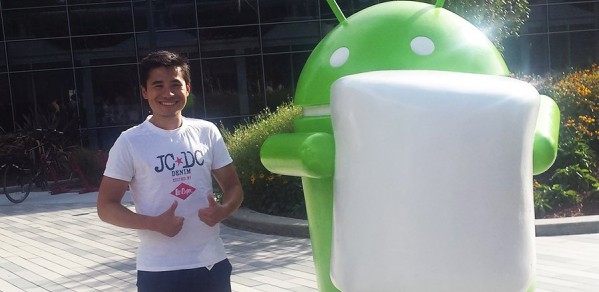
Engineering alumnus Christopher Pavlou (Jesus 2009) shares his story.
The skills you learn are invaluable, the friends you make are life-long, and you build up this mental toughness and belief that you can do anything.
Christopher Pavlou
‘Bittersweet’ is the term that my friends and I use to describe our time at Cambridge. The highs were euphoric (nothing beats the feeling of finishing exams and May Balls will possibly be the best, most unique parties I’ll go to); the lows were tough (I’d rather not go through the IB Engineering exam term ‘week of death’ again), but I will always look back with fond memories and realise how lucky I was to get the opportunity to study here. Many of my friends still can’t believe we had regular formals and black-tie dinners as students, or that we would spend our summers punting on the river.
Yes, studying at Cambridge can be tough – this is why the admissions process is so rigorous. However, I’m a firm believer that you get out what you put in with life and Cambridge was definitely worth it – ‘the juice was worth the squeeze’. The skills you learn are invaluable, the friends you make are life-long and you build up this mental toughness and belief that you can do anything.
Graduates will have several options open to them upon graduation and it is important that you choose well. I’m not sure that I did to start with but the experience was valuable all the same.
The start of a journey
When I applied to read Engineering, I did so because of a love of solving problems. I spent my first summer working as a mechanical engineer at Tata Steel (formerly Corus) before combining my interest in business with a different kind of problem-solving in my second summer as a strategy consultant. Although the work was interesting, the culture was incredibly stressful so I reconsidered what I should pursue as a career.
There were three distinct career paths that engineers from the Department seemed to take: engineering, consulting or investment banking. Each of these came with various compromises over job satisfaction, working hours and salary. In the end, I chose what I thought was the best compromise I could and joined BP as a flow assurance engineer (modelling fluid mechanics and the chemistry of hydrocarbons) upon graduation.
Just another cog?
There were several upsides to working at BP – I worked on critical engineering projects (including the $47 billion Shah Deniz II project), experienced unique opportunities such as working offshore and received some of the best training in the industry. The people I worked with were leaders in their fields, I made some very good friends and the work-life balance and benefits were great.

Jesus College
I thought I had my life and career mapped out. However, like many millennials, I soon became disillusioned with the reality of being ‘just another cog in the machine’. The work I was doing never truly excited me and I realised that I could never have the tangible impact on people’s lives that I wanted to, or become as successful as I aspired to be. My love of problem solving and desire to ‘build something cool’ ended up driving me towards the world of start-ups and entrepreneurship and, in 2015, I chose to take the leap.
Preparing for change
Making the switch wasn’t easy. The required skillset to work in start-ups is completely different to that of a large enterprise and I realised I was completely out of my depth. I spent my free time learning things like marketing and behavioural economics and teaching myself basic graphic design, how to build websites and how to code better (in spite of the Engineering Department’s best efforts, I never really ‘got it’ until my final year). I had to learn ‘start-up speak’ – terms like MVP (minimum viable product), LTV (customer life-time value) and SaaS (software as a service). These previously alien terms slowly became part of my vocabulary.
I was also at the pre-idea stage and thought I might as well learn the ropes first so I would make fewer mistakes when the big idea came. Fortunately, I had friends who were on various entrepreneurial schemes in London and, based on their advice, I applied to join the New Entrepreneurs Foundation (a charity that helps aspiring entrepreneurs) with a view to meeting potential co-founders and building my support network.
Finding the path
The New Entrepreneurs Foundation scheme includes a placement in an innovative, high growth company and I got an offer to work alongside the founders at a hip-flask brand called SWIG. The learning curve was immense and I did a bit of everything – from international strategy to hiring to search engine optimisation and digital marketing. I also met my current co-founder when at SWIG and, in 2016, we left to set up our own tech/e-commerce start-up focused on creating and growing online brands using some ground-breaking tools we developed. Ironically, we ended up doing some consulting on the side to pay the bills (myself as a freelancer, my co-founder at CurvedStone).
While I still think I’m trying to find my path in life, I feel as if I finally have the right end-goal in sight. The start-up scene is intense and I am under no illusion of the demands, but I really enjoy what I do and am excited about what the future holds.
Christopher has an MEng in Aerospace and Aerothermal Engineering and attended Jesus College.
If you would like to submit your own alumni story, email contact@alumni.cam.ac.uk for details of the submission guidelines.
For more University of Cambridge alumni stories, click here.
This article has been written by Christopher Pavlou and the opinions expressed are those of the author.

